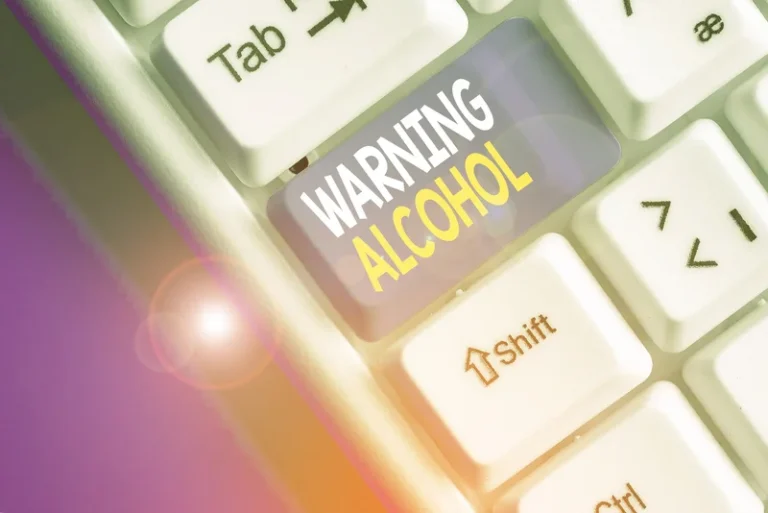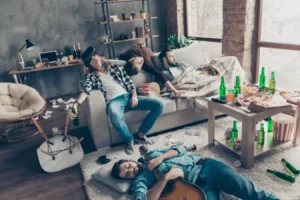
Thus down regulation of brainstem GABAergic systemsfollowing development of alcohol dependence would lead to diminished activity in REM-offsystems (see Figure 6) leading to an increasedpropensity for REM. This hypothesis has not been directly tested, and it should be notedthat other factors may play a role in the increased REM seen in long-term abstinentalcoholics. For example, administration of the tumor necrosis factor α(TNF-α) antagonist etanercept led to normalization of REM sleep in 18 abstinentalcoholics (Irwin et al. 2009). You may also experience parasomnias which are disruptive sleep disorders that occur in specific stages of sleep or in sleep-wake transitions. These can happen during arousals from rapid eye movement (REM) sleep or non-rapid eye movement (NREM) sleep. Although experts can’t be certain that alcohol directly causes insomnia, numerous studies have found a link between this sleep disorder and alcohol consumption.
Alcohol’s Effects on Hormone Function
EOG readings during wakefulness exhibit REMs, and EMG readings generally show a high amplitude indicative of large muscle movements. If you sleep better when you don’t drink, you might consider stopping alcohol use entirely. However, if you continue to have sleeping difficulties, reach out to a sleep specialist. Alcohol may be consumed in beer, wine, and hard liquors like vodka, rum, gin, and whiskey. It is more often consumed at night, also called a nightcap, and may negatively affect your sleep.
Snoring and Sleep Apnea
Drinking appears to have differential effects on sleep depending on chronic versus acute dosage18 Our cut-offs for drinking exposures and sleep problems are largely arbitrary and it is possible to other subtle relationships are masked. Findings using self-reported sleep can only support the hypothesis that alcohol impacts on underlying sleep architecture (for example reduction or suppression of REM sleep), which would need to be confirmed by overnight polysomnography sleep studies. The repeated collection of alcohol and sleep data over such a long period is unique. We were thus able to look at long-term drinking typologies and persistent sleep problems over three decades.
Causes and risk factors

Accordingly, one can also use these measurements to assess alcohol’s effects on the sleep-wake cycle. As noted earlier, Kleitman (1939) first reported that alcohol administration 60 minutes before nocturnal bedtime altered body temperature compared with placebo administration. does alcohol help you sleep Thus, alcohol administration initially resulted in a reduction in core temperature, followed by a rebound increase in temperature. Such a temperature-reducing (i.e., hypothermic) effect of alcohol also has been observed in numerous other studies.

0 Alcohol dependence and sleep in adolescence
Grand mean evoked potential waveforms for alcoholics at initial assessment(redlines) andat 12 month follow-up (blue lines) Fz, FCz, Cz, CPz and Pz. Simply cutting back or giving up alcohol or other drugs can be enough to reverse the negative impacts on your sleep (and can greatly improve your health overall). Sleepwalking and parasomnias — You may experience moving a lot or talking while you’re sleeping. There’s a chance you’ll physically act out your dreams in your sleep, or even sleepwalk. Besides just waking you up a lot, alcohol can disrupt your normal sleep patterns enough to create some longer-term issues you may need to address. If you have alcohol in your system when you hit the hay, you may not sleep very deeply, or for very long, on and off throughout the night.
- Kuhlwein, Hauger and Irwin (2003) reported lower cortisol early inthe night and higher levels later in the night in their African American alcoholics aftertwo weeks.
- However, again, thereare other possible mechanisms that may also contribute to these effects.
- It’s not because I don’t appreciate a glass of wine with a great meal, or a few beers on a hot summer evening.
- Alcohol interferes with these circadian rhythms regulating the liver, and can contribute to compromised liver function, liver toxicity, and disease.
- Read on to find out how alcohol can affect your sleep, and why—as well as insight into the health benefits of getting enough shut-eye.
Alcohol Dependence and its Relationship with Insomnia and Other Sleep Disorders
- This association may be secondary to subjects self-medicating their insomnia with alcohol (Kaneita et al., 2007, Ancoli-Israel and Roth, 1999, Johnson et al., 1998).
- Although consuming alcohol before bedtime helps you fall asleep faster, the popular beverage negatively affects overall sleep quality.
- Regular drinking has also been linked to shorter periods of rapid eye movement (REM) sleep, a disrupted circadian rhythm, and snoring.
- The neurobiological mechanism underlying alcohol’s suppression of REM sleep is unclear.
- The results indicated that the level of sleepiness or alertness at the time of alcohol administration altered alcohol’s subsequent sedating and performance-disrupting effects.
Alcohol & Sleep Apnea


0 commentaires